
Engenharia Sanitaria e Ambiental
Scope & Guideline
Championing open access to transformative research.
Introduction
Aims and Scopes
- Water Quality Management:
Research focusing on the treatment, monitoring, and management of water quality in various contexts, including urban water supply, wastewater treatment, and the impact of pollutants on ecosystems. - Waste Management and Resource Recovery:
Investigation of techniques and methodologies for managing solid waste, including recycling, composting, and energy recovery from waste materials. - Environmental Impact Assessment:
Studies assessing the environmental impacts of various activities and processes, including industrial operations, urban development, and agricultural practices. - Innovative Treatment Technologies:
Exploration of advanced treatment technologies for wastewater and solid waste, including anaerobic digestion, biofiltration, and electrocoagulation. - Sustainability and Resource Efficiency:
Research promoting sustainable practices in environmental management, including the efficient use of resources, reduction of waste, and the integration of renewable energy sources. - Ecotoxicology and Public Health:
Studies examining the effects of environmental contaminants on public health and ecosystems, with a focus on risk assessment and mitigation strategies.
Trending and Emerging
- Advanced Oxidation Processes (AOP):
Research into AOPs for the treatment of pollutants, particularly pharmaceuticals and herbicides, reflects a growing interest in innovative and effective water treatment technologies. - Circular Economy and Waste Valorization:
An increasing focus on the principles of the circular economy, particularly in the context of waste valorization and resource recovery, indicates a shift towards sustainable material management. - Impact of Climate Change on Water Resources:
Studies examining the effects of climate change on water availability and quality are on the rise, addressing urgent global challenges and the need for adaptive management strategies. - Biological Treatment Systems:
There is a notable trend towards researching biological treatment systems, such as anaerobic digestion and bioreactors, which are seen as sustainable solutions for wastewater treatment. - Public Health and Environmental Interactions:
Emerging research linking environmental quality to public health outcomes, particularly in the context of the COVID-19 pandemic, emphasizes the importance of environmental sanitation in health management.
Declining or Waning
- Traditional Water Treatment Methods:
There has been a noticeable decline in studies focused solely on conventional water treatment methods, as the field shifts towards more innovative and sustainable approaches. - General Environmental Monitoring:
Research that broadly addresses environmental monitoring without specific applications or technologies has become less prominent, giving way to more targeted studies with practical implications. - Historical Analysis of Environmental Policies:
Papers focusing on historical perspectives of environmental policies appear to be decreasing, suggesting a shift towards current and future-oriented studies.
Similar Journals
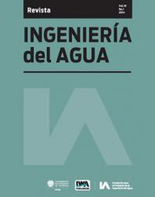
Ingenieria del Agua
Driving Innovation in Hydrology and Environmental SolutionsIngenieria del Agua, published by Universitat Politècnica de València, Editorial UPV, is a prominent open-access journal dedicated to the field of water engineering and management. With its ISSN 1134-2196 and E-ISSN 1886-4996, this journal has been facilitating the dissemination of critical research and innovative practices in water resources since 1994. With a commitment to providing unrestricted access to high-quality research, Ingenieria del Agua aims to serve as a pivotal platform for researchers, professionals, and students alike. Focused on the intersection of hydrology, environmental engineering, and sustainability, the journal encourages submissions that address contemporary challenges in water resource management, promoting advancements that are vital for both ecological conservation and societal needs. By fostering a collaborative academic environment, it plays an essential role in shaping the future of water engineering.

Environmental Engineering and Management Journal
Driving change through impactful research and collaboration.Welcome to the Environmental Engineering and Management Journal, a pivotal platform for disseminating knowledge and innovative research in the fields of Environmental Engineering, Management, Monitoring, Policy, and Law. Published by GH Asachi Technical University of Iasi in Romania, this journal has been committed to fostering discussions and advancements in environmental solutions since its inception in 1988, with continuous publication from 2002 to 2024. While classified in the Q4 category across various environmental disciplines in 2023, it remains an important resource for scholars and practitioners navigating the complexities of pollution and environmental management. With an ISSN of 1582-9596 and an E-ISSN of 1843-3707, this journal encourages submissions that address pressing ecological challenges and provide actionable insights. Although currently not open access, it seeks to expand its reach and relevance within the global academic community. Join us as we explore critical environmental issues and contribute to sustainable practices worldwide.

Water Conservation Science and Engineering
Advancing Sustainable Solutions for Water PreservationWater Conservation Science and Engineering, published by SPRINGERNATURE, is a vital academic journal dedicated to advancing the fields of environmental engineering, ocean engineering, waste management, and water science and technology. Since its inception in 2016, the journal has quickly established itself within the academic community, achieving a commendable Q3 ranking across multiple categories in 2023. With an ISSN of 2366-3340 and an E-ISSN of 2364-5687, it is accessible to a global readership eager to explore the latest research and innovations in water conservation and sustainable practices. Although currently not open access, the journal is committed to publishing high-quality scholarly articles that provide insights into effective water management strategies, innovative engineering solutions, and the critical importance of preserving our water resources. Based in Singapore, Water Conservation Science and Engineering aims to foster interdisciplinary collaboration among researchers, professionals, and students, making it an essential resource for anyone passionate about environmental sustainability and preservation.
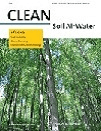
CLEAN-Soil Air Water
Empowering Global Knowledge in Environmental ScienceCLEAN-Soil Air Water, an esteemed journal published by Wiley, serves as a vital platform for disseminating research in the fields of environmental chemistry, pollution, and water science and technology. Operating under an Open Access model, it embraces the principles of knowledge sharing, making significant research findings readily accessible to a global audience. With an ISSN of 1863-0650 and an E-ISSN of 1863-0669, the journal has demonstrated its importance in the academic community, reflected in its Scopus rankings within the top quartiles of its categories. Established in 2007 and continuing through to 2024, CLEAN-Soil Air Water offers researchers, professionals, and students an opportunity to explore innovative studies that address pressing environmental challenges, facilitating an exchange of novel ideas and techniques essential for sustainable development. With a publication footprint in Germany and a growing international reputation, this journal is an invaluable resource for those dedicated to advancing the science and practices of environmental stewardship.

Revista Eletronica em Gestao Educacao e Tecnologia Ambiental
Advancing education and technology for a sustainable future.Revista Eletronica em Gestao Educacao e Tecnologia Ambiental, published by the Universidade Federal de Santa Maria, serves as a pivotal platform in the interdisciplinary fields of education management and environmental technology. Dedicated to advancing knowledge and fostering best practices in these critical areas, the journal features peer-reviewed articles, case studies, and innovative research that reflect the latest trends and findings. With an open access model, it ensures that valuable information is readily available to researchers, professionals, and students alike, promoting knowledge sharing and collaboration across borders. Although specific metrics such as impact factor and H-index are currently unavailable, the journal’s commitment to quality and relevance resonates within the academic community, making it an essential resource for those looking to contribute to the discourse on effective educational strategies and sustainable technological applications in environmental contexts. Based in Santa Maria, Brazil, this journal is ideally positioned to highlight regional research while engaging a global audience interested in progressive approaches to education and technology.
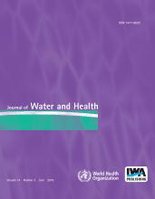
JOURNAL OF WATER AND HEALTH
Pioneering research for a healthier world through better water management.The JOURNAL OF WATER AND HEALTH, published by IWA PUBLISHING, serves as a leading platform for disseminating innovative research related to water quality, sanitation, and public health. With its ISSN 1477-8920 and E-ISSN 1996-7829, this esteemed journal significantly contributes to the fields of Public Health, Environmental Science, and Microbiology, as evidenced by its robust rankings in several quartiles, including Q2 in Public Health and Water Science and Technology in 2023. This periodical enjoys a convergence of years from 2003 to 2024, underscoring its continuous relevance in addressing critical global issues such as water safety and infectious diseases. Although not an open-access journal, the insights and findings presented are pivotal for researchers, professionals, and students eager to contribute to the sustainable management of water resources and health improvements worldwide.
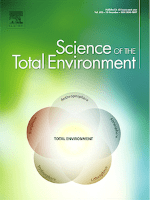
Science of The Total Environment
Transforming Environmental Challenges into OpportunitiesScience of The Total Environment, an esteemed journal published by Elsevier, holds a significant position in the field of environmental science, encompassing critical areas such as Environmental Chemistry, Environmental Engineering, Pollution, and Waste Management and Disposal. With an impressive impact factor and ranked in the Q1 quartile across its categories for 2023, the journal is recognized for its high-quality research output and contribution to environmental sustainability. Operating from its base in the Netherlands, the journal has been a valuable resource since its inception in 1972, welcoming innovative studies that address complex environmental challenges. Its notable rankings—such as Rank #9 in both Environmental Sciences and Pollution—underscore its relevance and influence in the academic community. Although the journal currently does not provide an open access option, the robust findings and discussions presented within its pages continue to foster a deeper understanding of environmental issues. Science of The Total Environment is an essential platform for researchers, professionals, and students dedicated to advancing knowledge and solutions in the rapidly evolving field of environmental science.
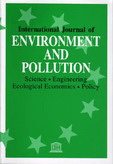
INTERNATIONAL JOURNAL OF ENVIRONMENT AND POLLUTION
Empowering Researchers to Tackle Global Environmental ConcernsInternational Journal of Environment and Pollution is a pivotal publication in the field of environmental science, dedicated to advancing knowledge concerning pollution and its multifaceted impacts on ecosystems and human health. Published by InderScience Enterprises Ltd, this journal, which has been in circulation since 1991, serves as a vital platform for researchers, professionals, and students interested in the management, monitoring, policy, and law associated with environmental issues. With an ISSN of 0957-4352 and E-ISSN 1741-5101, it offers a critical perspective on pollution challenges, emphasizing Waste Management and Disposal. Although placed in the Q4 quartile of its categories, it remains an important resource for understanding the complexities of environmental impact, contributing to policy formulation and ecological research. The journal does not offer Open Access, but it can be accessed through various academic libraries and institutions that value comprehensive studies in environmental management. Engage with the latest findings and discussions that address pressing environmental concerns today!
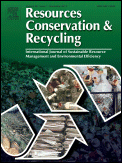
RESOURCES CONSERVATION AND RECYCLING
Driving knowledge for effective resource utilization.RESOURCES CONSERVATION AND RECYCLING, published by Elsevier, is an esteemed journal that has been at the forefront of academic discourse since its inception in 1988. Focusing on the critical fields of resource management, recycling, and sustainability, this journal has established itself as a leading platform for innovative research, holding a prestigious position in the Q1 quartile for both Economics and Econometrics, and Waste Management and Disposal. With a remarkable Scopus ranking of #4 in its respective categories, it represents the pinnacle of scholarly contributions, aimed at fostering knowledge that drives efficient resource utilization and effective waste management practices. The journal's commitment to advancing the understanding of economic implications and environmental impacts of resource conservation is reflected in its diverse array of articles, case studies, and reviews. Although it is not an open-access journal, the valuable insights it offers are essential for researchers, professionals, and students who are dedicated to addressing pressing environmental challenges and enhancing sustainable practices on a global scale.
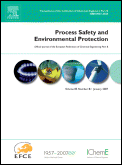
PROCESS SAFETY AND ENVIRONMENTAL PROTECTION
Driving excellence in safety management and environmental protection.PROCESS SAFETY AND ENVIRONMENTAL PROTECTION, published by Elsevier, is a premier academic journal dedicated to advancing the fields of chemical engineering, environmental science, and safety management. With an impressive impact factor, this esteemed journal undergoes a meticulous peer-review process and serves as a vital platform for researchers, professionals, and students seeking to disseminate cutting-edge research and innovative practices. Submissions are welcome in a wide scope of topics related to safety, risk, reliability, and environmental engineering, demonstrating its influence as a Q1 journal across multiple categories, including Environmental Chemistry and Safety, Risk, Reliability and Quality. By providing a rigorous analysis of current challenges and solutions in the domain since its inception in 1990, it continues to foster interdisciplinary collaboration and practical applications in the United Kingdom and beyond. With the journal not currently offering Open Access options, subscribers gain exclusive access to pivotal insights that shape industry standards and drive advancements in sustainable practices.